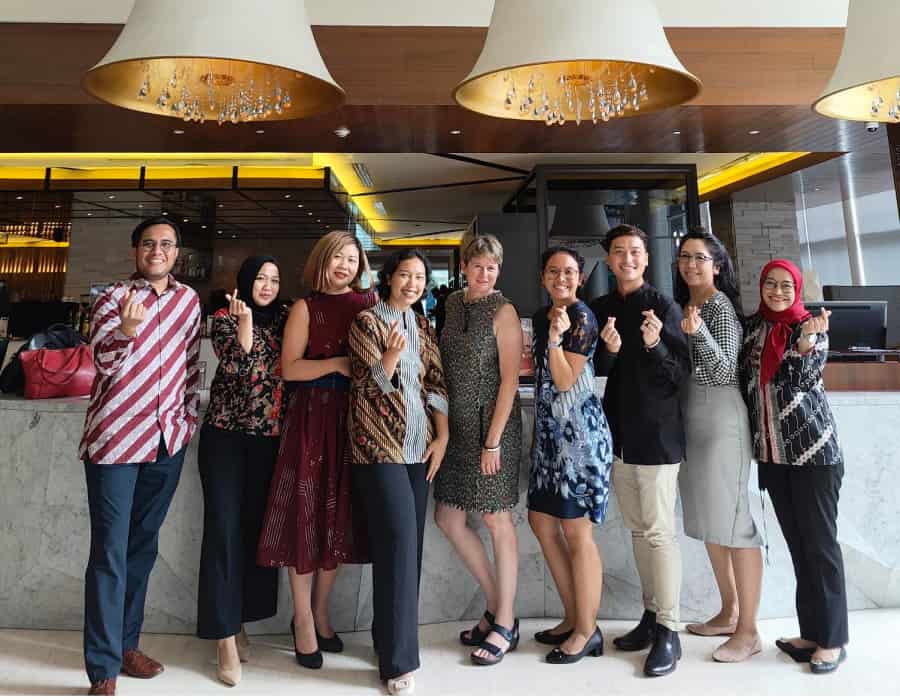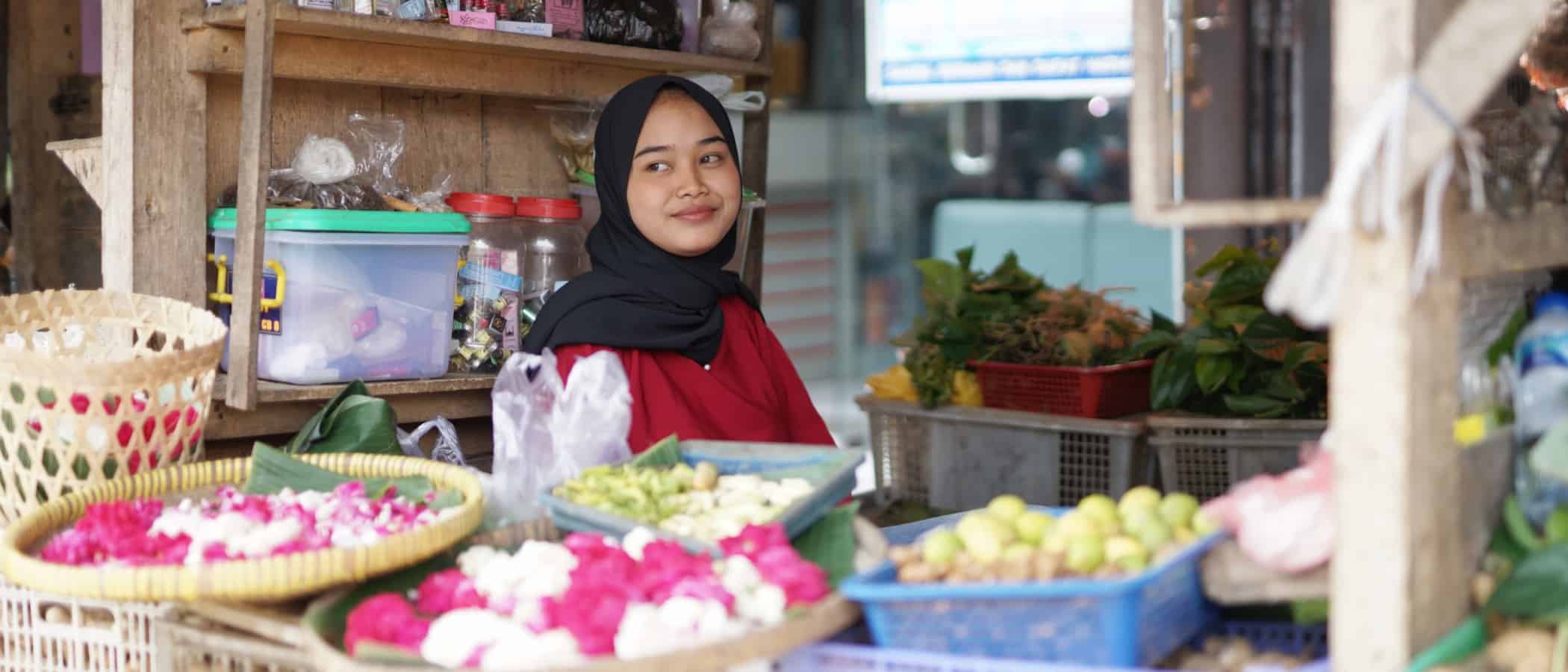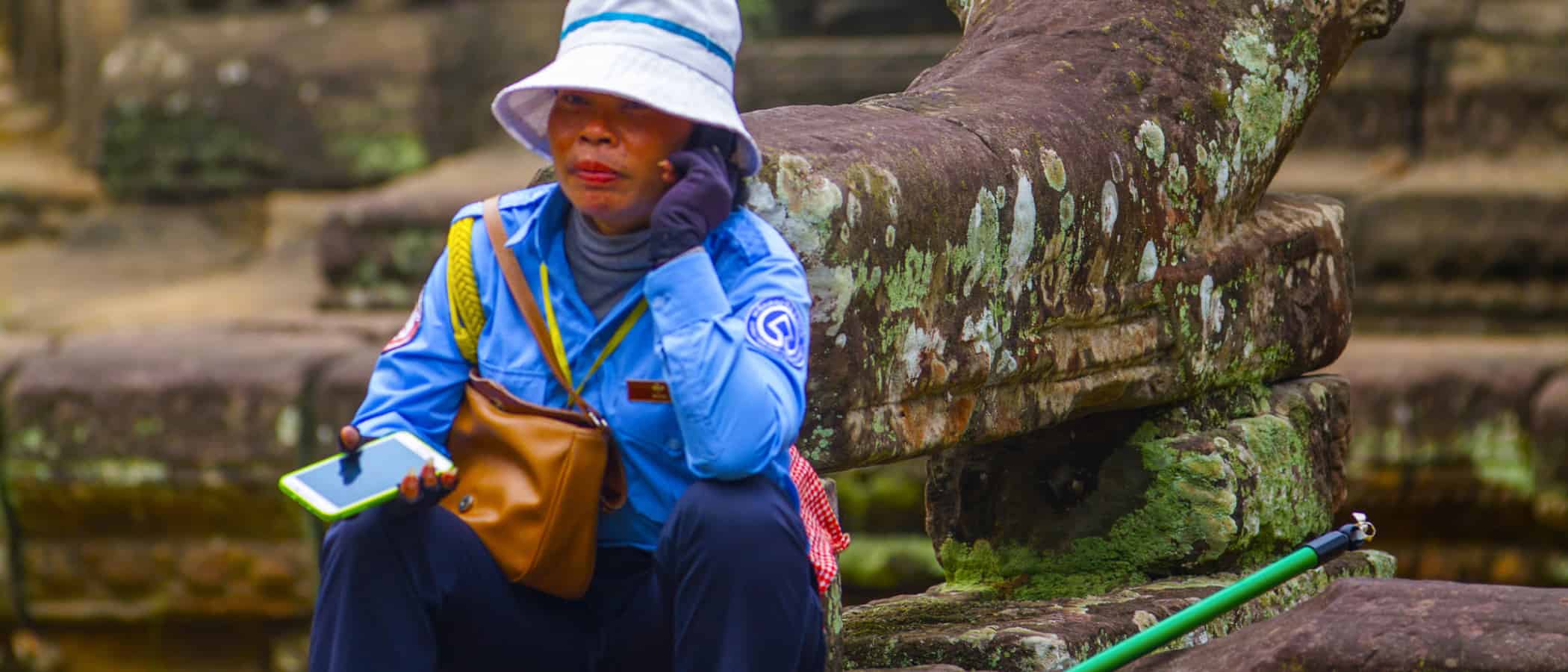Southeast Asia
Learn how our efforts have benefitted women and banking institutions in this region.
Usage and Engagement for Underbanked
In 2017, we saw that 120MM women were either unbanked or had an account that they did not use in Southeast Asia. The region finds itself at a critical inflection point for financial inclusion. Governments consider it a “hot burner” political issue. Coupled with cost-effective and improving technology, banks and financial services providers (FSPs) are seeking new customer bases due to saturated markets offering an important entry point to serving new low-income segments, such as ultra-micro entrepreneurs and remittance recipients in Indonesia, low-income factory workers in Cambodia and G2P recipients across the region. Learn how Women’s World Banking is impacting women’s financial inclusion in Southeast Asia.
How We're Addressing the Problem
In Southeast Asia, our strategy is to work with top-tier FSPs, such as Indonesian state-owned banks (BRI, BNI, and Mandiri), leading commercial banks such as Wing Bank and SeaBank Indonesia, and the top three e-wallets & fintechs in each market. We seek partners that are committed to driving women’s financial inclusion and can do so at scale. Additionally, through our policy and advocacy work, we work to influence key policymakers to implement policies that strengthen the digital and financial ecosystem in these markets. Recent policy and advocacy initiatives include our active participation in Indonesia’s G20 in 2022, including the Ministerial Conference on Women’s Empowerment, and our ongoing partnership and capacity building with Indonesia’s Women’s Digital Financial Institution Coalition (IKDP), which is sponsored by Indonesia’s Ministry of Women’s Affairs.
Areas of current and future focus for us in Southeast Asia include supporting MSME growth through use of e-commerce platforms, providing safe and cost-effective remittances for migrant workers, and expanding the collection and use of gender-disaggregated data by FSPs and policymakers, with a particular emphasis on two key segments – women ultra-micro-entrepreneurs and unbanked/underbanked low-income young adult women.
What We Are Learning
End-to-end customer journeys must include account education and a strategy to drive higher account usage to maximize the value for women. Also, women ultra-micro entrepreneurs require more than financing to grow their businesses; they need programs that improve their business capabilities, provide better access to markets and information to help them make better business decisions, and support formalization of their businesses. We’ve also learned:
- Partnering with state-owned banks accelerates impact and scale
- Providing a use case for women is critical for a solution’s success
- Replicating solutions still requires customization
- Policy and advocacy work requires long-term and cross-functional relationships with senior government officials across multiple ministries and regulatory bodies
Results We Are Seeing
Through collaborations with key FSP partners including state-owned banks (AMK, BNI, BRI), commercial banks (WING), and major digital service providers (DANA), and subsidized funding from the Indonesian government, we have reached over 6.4 million women with financial services in our key markets in Southeast Asia.
- Our G2P Account Activation and Engagement solution developed in partnership with BRI has reached more than 1.6 million Program Keluarga Harapan (PKH) beneficiaries since 2021.
- Our savings account activation solution with PT Permodalan Nasional Madani (PNM) has reached more than 3 million women since 2023.
- Our Payroll Account solution with WING Bank has been rolled out to more than 84,000 Cambodian women factory workers since 2022. As a result of our Solution with Wing, today approximately 40% of women factory workers with Wing digital payroll accounts actively use the WING banking app.
- Our Digital Remittances solution with DANA was rolled out to more than 270,000 women in 2022.
"Access to digital financial services has become a necessity, especially for Indonesian women. We formed the WDFI Coalition as a forum for stakeholders to collaborate in efforts to improve the welfare of Indonesian women, to achieve gender equality in the economic field, mainly through the three main agendas of the WDFI Coalition."
Lenny Rosalin
Former Deputy Minister, Ministry of Women's Empowerment and Child Protection, Indonesia
"As a result of working with Women’s World Banking, AMK is looking more closely at identifying the strongest use cases to attract new women customers and ensure that barriers that women face in using formal financial services are identified and steps are taken to provide an improved customer journey for women."
Kea Borann
CEO, AMK Microfinance Institution, Canada
Our Southeast Asia Team
Christina Maynes
Regional Head
Vitasari Anggraeni
Policy and Advocacy
Martha Hindriyani
Evidence and Insights
Elwyn Panggabean
Advisory Services
Policy and Advocacy
Sharada Ramanathan
Programs and Relationship Management
Agnes Salyanty
Research
Ker Thao
Advisory Services

Our Regional Partners
Financial Service Providers (FSPs)
Indonesia
- BNI
- BRI
- DANA
- Amartha
Cambodia
- Wing Bank
- AMK
- Credit Bureau of Cambodia
- Boost Capital
Philippines
- CARD MRI
- NWTF
Policymakers and Regulators
Indonesia
- Bank Indonesia
- BAPPENAS
- Coordinating Ministry of Economic Affairs
- Executive Office of the President of the Republic of Indonesia
- Otoritas Jasa Keuangan (OJK)
- Pusat Investasi Permerintah (PIP) – Ministry of Finance
- Ministry of Social Affairs
- Ministry of Women’s Empowerment
Cambodia
- National Bank of Cambodia
- Ministry of Economy and Finance
- Ministry of Women’s Affairs
Philippines
- Bangko Sentral ng Pilipinas (BSP)
- Insurance Commission
Thailand
- Securities and Exchange Commission (SEC)
Papua New Guinea
- Bank of Papua New Guinea
Research Partners
- Lembaga Demografi
- Mitra Mandiri Riset (MMR)
- SuveyMETER
- Indochina Research
- RISE Indonesia
Case Studies

BRI Bank in Indonesia




